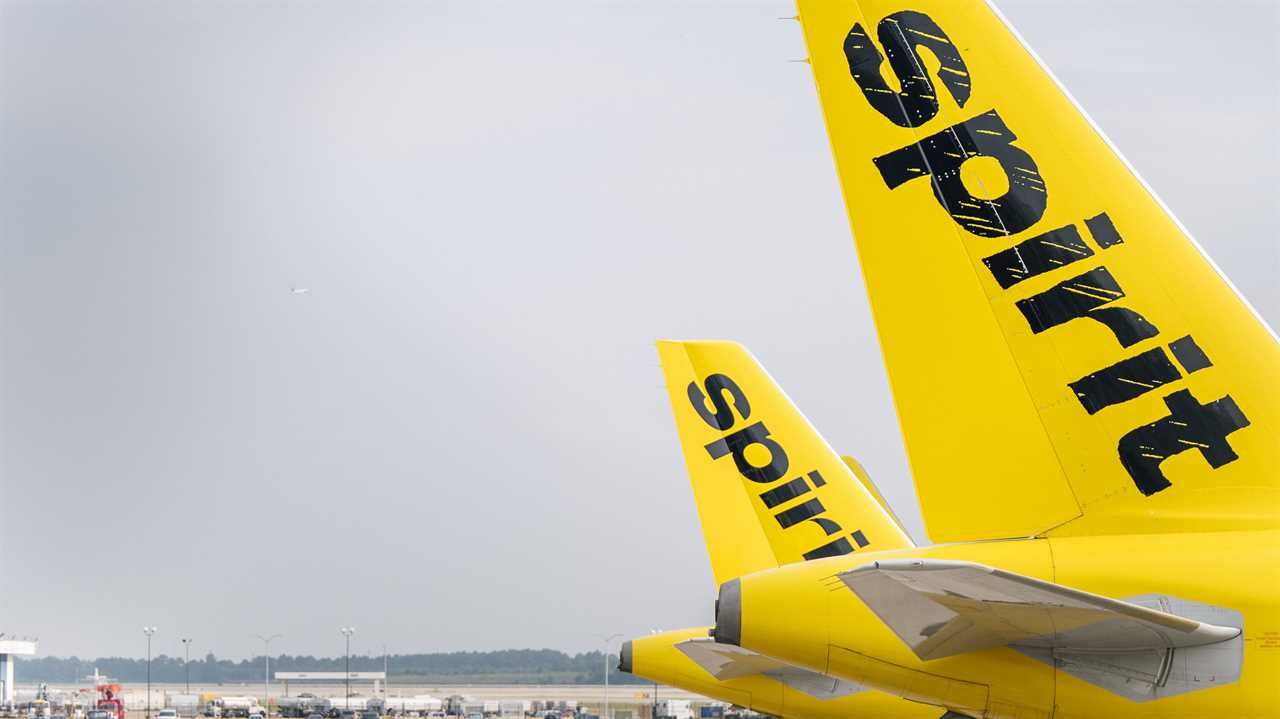
When the dust settled on a big round of airline consolidation nearly a decade ago, four large companies came to dominate the industry. A new merger scramble could challenge that cozy arrangement.A brewing fight over the future of the budget carrier Spirit Airlines may give rise to a credible, albeit still smaller, competitor to the industry’s giants. In February, Frontier Airlines and Spirit announced plans to merge, promising to create a national budget airline that would help keep fares low. JetBlue Airways this week made its own bid, of $3.6 billion, for Spirit, which said late Thursday night that it would consider the proposal.Whether Spirit ends up merging with Frontier or JetBlue, the combined company could pose a more formidable threat to the nation’s four largest airlines — American Airlines, Delta Air Lines, United Airlines and Southwest Airlines — which have a combined 66 percent share of the domestic market. The four operate in a league of their own, especially at their hub airports in cities like Atlanta, Dallas, Houston and Newark, where they each control a large share of gates and flights.In an illustration the industry’s lopsided nature, Alaska Airlines, the fifth-largest carrier last year, controlled just 5 percent of the domestic air travel market, while United, the fourth biggest, had nearly 13 percent. A combined Frontier and Spirit would control over 8 percent of the market, and JetBlue and Spirit together would command more than 10 percent.“You’re facing American, United, Delta and Southwest with such enormous fleets and market penetration,” said Samuel Engel, a senior vice president and airline industry analyst at ICF, a consulting firm. “It is reasonable that a beefier No. 5 will make for a stronger competitor.”Of course, neither deal is a certainty, and in either combination, executives could struggle to mesh the businesses. Integrating airlines, including their computer systems and the seniority rankings of pilots and flight attendants, has never been easy and has led to widespread flight cancellations and long legal disputes.Either proposed merger would also require the approval of antitrust regulators who under President Biden have been emboldened to challenge deals that might have sailed through in previous administrations.“Both deals present a new challenge to antitrust agencies,” said Paul Denis, who represented US Airways in its merger with American Airlines, which closed in 2013. Earlier in his career, he also reviewed mergers and acquisitions at the Justice Department.Mr. Denis said regulators examining airline deals had historically focused on the impact of combining large, legacy airlines — those in business for decades. This review, however, would explore whether there is a “unique rivalry” among the lower-cost carriers “that is deserving of protection” by the Justice Department.Regulators are concerned about more than market share. They want to know how a proposed merger affects travelers, including whether the combined company will be able to significantly raise fares on routes where the two companies previously competed head-to-head. And the Biden administration is uniquely focused on the impact of corporate deals on economic inequality by, for example, raising fares and suppressing wages. It is not always easy to predict the likely impact of any given deal, legal experts said.A merger between Frontier, which is concentrated in the West, and Spirit, which is concentrated in the East, would create a larger national budget airline that could pressure bigger carriers to drop fares in more cities. But the deal would eliminate their competition on competitive routes, potentially hurting cost-conscious travelers.In addition, Frontier and Spirit have been criticized for poor customer service, and Phil Weiser, the attorney general of Colorado, where Frontier is based, warned federal regulators last month that the merger “creates a real and pressing risk” that service could worsen if the two companies merged.JetBlue already competes with the four large airlines in cities like New York and Boston and could challenge them further if it is able to acquire Spirit’s planes, airport gates and staff. Consumers could benefit from a better flying experience thanks to the perks that JetBlue offers. But Spirit’s ultracheap fares may not survive because JetBlue tends to cater to more affluent travelers and has been expanding premium services like business-class seats.Another factor that could complicate JetBlue’s bid for Spirit is that it is already enmeshed in an antitrust lawsuit brought by the Justice Department. The department is seeking to nullify an alliance between JetBlue and American in the Northeast, a deal that one official described last year as a “de facto merger.” The agency said in its By: Niraj Chokshi and Lauren Hirsch
Title: Bidding War for Spirit Could Undercut Power of Four Big Airlines
Sourced From: www.nytimes.com/2022/04/08/business/spirit-airlines-jetblue-frontier.html
Published Date: Fri, 08 Apr 2022 09:00:17 +0000
Read More
Did you miss our previous article...
https://badpoliticians.com/us-politics/this-moment-is-being-celebrated-by-judge-jacksons-black-women-alma-mater
 UK PoliticsWorld PoliticsVideosPrivacy PolicyTerms And Conditions
UK PoliticsWorld PoliticsVideosPrivacy PolicyTerms And Conditions
